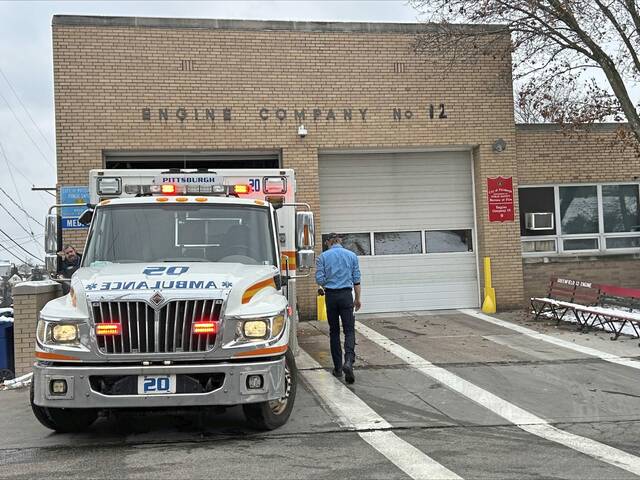Laurel: To a life-saving gift. For many emergency medical service operations, staying ahead of expenses and up-to-date on equipment can be a tricky balance. A gift from the AHN Forbes Hospital Foundation has helped make that a little easier.
Seven ambulance services in Allegheny and Westmoreland counties have received a total of 36 new Zoll remote cardiac monitors/defibrillators. The equipment doesn’t just provide necessary shock to jump-start a patient’s heart. It also tracks the critical information about the heartbeat, sending it directly to the hospital, which then can have a better idea of exactly what the person needs upon arrival.
“It makes a tremendous impact. We’re using it 98% of the time,” said Ed Grant, operations director for Penn Township Ambulance Association.
Saving time and improving communication are priceless in responding to a cardiac emergency, but the monitors come at a price tag of about $31,000 apiece. That is a great gift to the ambulance services but an even greater one to the people whose lives have been saved.
Lance: To a lack of logic. The Department of Environmental Protection took a stand for the rules in telling Kiski Township that had to stop providing a service it had been doing for residents for years — burning yard brush such as branches and stumps — unless it applied for a permit and purchased an “air curtain destructor” that would pick up smoke and particles.
The township decided to stop accepting brush rather than purchasing the equipment. That was probably a good fiscal move for the community, but did DEP make the best call for the environment?
Yes, it followed the state Solid Waste Management Act, but at what cost? Residents still are allowed to burn on their property, said township Secretary Patrick Bono, provided they are prepared to extinguish the fire. But DEP says they also have to make sure “emissions” — i.e., smoke — from the fire doesn’t cross to other properties.
Sure, that will work. Oh, wait, what about that Canadian wildfire smoke that drifted into Pennsylvania last month?
But if people don’t burn their waste, what will happen to it? It could end up in landfills instead, which certainly doesn’t help the environment.








